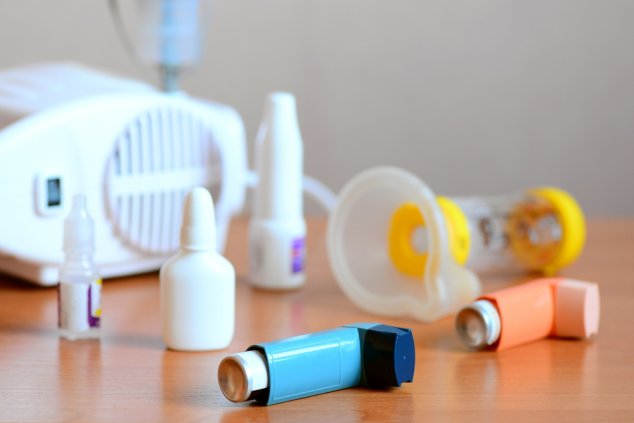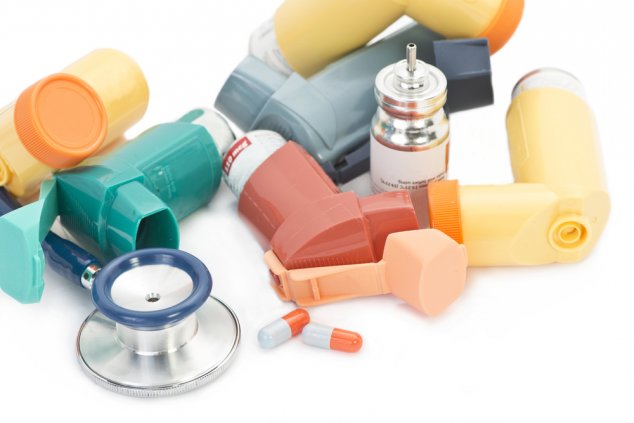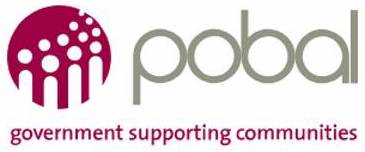
Rising costs mean that many sufferers are feeling the pinch when it comes to asthma treatment.
Asthma treatment has vastly improved in recent years. With significant advances in care and medicines, most people can control their condition and live full, normal lives. But not everyone is experiencing this benefit. For the many Irish people with asthma on low incomes, the high costs of medicines and doctor visits can prove a barrier to effective asthma management.
Some people are rationing their medicines, particularly the preventive inhalers, or even foregoing them entirely because of the prohibitive expense. But it is a false economy with potentially harmful consequences.
Over 12% of the entire Irish population now suffers from asthma and management of the condition is poor, with up to 90,000 of those affected failing to keep it under control, according to a recent international study. This research, which is an Irish extension of the Asthma Insights and Reality in Europe (AIRE) study, found that more than half of Irish people with asthma are awakened at night by asthma symptoms, and nearly three-quarters of sufferers experience some limitation in their normal activities due to asthma. Worryingly, almost eight in 10 children with asthma did not have their illness under control.

Reduce the Cost of Living with Asthma
Asthma is a lifelong disease that is managed with medication. A key part of having good asthma control for most people is taking medication day in-day out, even when you’re well. Yet asthma medication is expensive in Ireland. A survey of our members highlighted the scale of the problem with 40% of respondents saying that they don’t take their medication as prescribed because of cost. On average a person with asthma spends between €100 and €144 a month which is a huge financial drain on their income. A further 25% said they travel outside of Ireland to buy their medication because they can’t afford to buy it here. Most of those surveyed said they spent more than €250 per year on GP visits. As asthma is a disease that runs in families GP and medication costs can sky rocket.
These figures are extremely worrying but not unexpected. We know that 60% of people with asthma in Ireland do not have their asthma under control. That means that they have regular symptoms, such as coughing, wheezing, shortness of breath and chest tightness. Without regular medication these people risk worsening symptoms potentially progressing to an asthma attack, hospitalisation and even death. Add to this that 18% of people who answered our survey had lost their medical card in the last year and it makes for an extremely concerning situation. 31% of those surveyed rate the care they have received from the Irish Health service for their asthma as poor. Cost should not be a barrier to health and people with asthma deserve better.
Budget Recommendations
-
Reduce the cost of asthma medication.
-
Subsidise medication for those most in need - either through the Long Term Illness Scheme, the Medical Card Scheme or another targeted scheme for people with asthma. In a recent survey of our members 91% of respondents stated that they wished to see a commitment by all political parties to have asthma included in the Long Term Illness Scheme.
-
Introduce free GP care for all people with asthma as per the cycle of care set out in the National Clinical Programme something which 53% of our members said should be rolled out as a priority in a recent survey.
It's pretty expensive to keep breathing
James Brennan from Kilcullen in Co Kildare experienced this double-edged sword for himself recently. He managed to secure employment at a time when jobs are increasingly scarce, only to discover that he now faces a monthly bill of €80 for his preventer inhaler, plus GP fees and an additional Ventolin inhaler during the winter months, when his asthma deteriorates.
“I am working for a minimum wage and can’t really afford €80 per month for the preventer inhaler,” he tells Asthma News.
“I work the odd night-shift for an extra bit of money and that helps to pay for the medication, but I don’t know how long I can keep affording it all. “My medical card expired about four months ago and that was the first time I had to go and pay €55 to see a doctor about my asthma, and then I set up a repeat prescription which is another €10 on top of that,” says James. “It’s pretty expensive to keep yourself breathing.
” Architectural student, Katy Pearson admits that her medication was not effectively managing her asthma recently but being cash-strapped, she avoided the costly GP visit to review her treatment plan. Unfortunately, the fall-out was a frightening late-night asthma attack while alone in her digs in Waterford Institute of Technology. “I was awake all night, I couldn’t breathe. It felt like my throat was closing up. I know I should have called the out-of-hours doctor service but it’s so expensive, I thought I’d wait until morning and see the college doctor. But when I got there his surgery was full so I had to see the nurse first. That was an extra €20. I got the nebuliser and then I saw the GP, for another €40,” she explains.
Katy’s doctor quickly realised that the preventer inhaler she had been using since childhood was well below strength for a 22-year old woman. “The beclazone inhaler I was on was 50 micrograms, he told me that was a child’s strength. He switched me to a 200 dose. But I had already spent €60 of my €100 weekly allowance so I couldn’t afford the €37 for the new inhaler, until I went home to Tipperary and got some more money from my parents. I really didn’t want to have to ask them for it, but I knew I needed this new inhaler,” says Katy. “It’s making such a difference now, it’s brilliant. But I don’t see why I have to carry the entire cost of my asthma. There should be some form of financial help out there for people like me who have had asthma all their lives and probably will for the rest of my life."
Why isn’t asthma one of the conditions on the Long-Term Illness Scheme? Because it is a long-term illness for most of us
A recent US study shows that Katy is not alone is feeling the pinch when it comes to costly asthma treatment. The 2005 Health Costs Survey reported that 43% of all people with asthma said that, in the past year, they did not have the money to pay for their treatment, and a similar number tried to save cash by not taking their medicine or skipping doctor’s visits.
According to Dr Shanahan, prevention medication on a regular basis, will greatly reduce not just the number of asthma attacks that the person has, which has a knock on financial benefit for them, but it also reduces the cost to the State and most importantly of all, it reduces the number of deaths from asthma.
There are between 4,000 and 5,000 asthma- related hospital admissions in Ireland every year. And poorly controlled asthma kills up to 70 people each year in this country, almost a third of them are under 40 years of age, according to statistics from the Asthma Society of Ireland. “ G i v e n t h e severity of asthma in Ireland and that we are seeing well over 50 asthma deaths a year, the State needs to look at how the cost of these very vital medications can be reduced or subsidised. The up-shot of this investment, ultimately, will be the saving of lives and money,” says Dr Shanahan.

Safer Ways
There are no easy answers and no perfect solutions to the problem of high-cost medication but there are ways for savvy patients to save on their asthma treatment.
Generics
Ask your doctor and your pharmacist about taking generic medicines instead of brand name drugs. Although there are a limited number of generic asthma treatments available, they can be substantially cheaper, advises Dr Eamonn Shanahan, a GP in Killarney, Co Kerry. “Seeking a generic alternative is an excellent option. I do not prescribe by brand name, I prescribe by generic name, and I leave it up to my pharmacist to dispense the best offer he has.”
Older Medicines
There are many examples in asthma and other chronic conditions where there are older medications that are just as effective in some situations as the newer treatments. “There are new asthma mediations on the market that are particularly effective for some individuals, but thankfully most of the inhalers we use now have been around for a long time and are much cheaper. Ask your doctor if the newer, expensive medication is really necessary or is there an older, cheaper alterative that would be just as effective,” Dr Shanahan suggests.
Environmental Control
Everyone with asthma should also be using environmental control to reduce exposure to allergens. But it’s especially important if you really can’t afford to pay for medication. Some ways of reducing your exposure are fairly cheap. Tobacco smoke is a serious breathing irritant and a strong asthma trigger. Quitting smoking and making your home a smoke-free zone will help you feel better and save you money. Dust mite droppings are another common asthma trigger. Allergen-proof covers for pillows, mattresses and box springs keep dust mites from building up and are widely available. Wash bedding often in hot water. Other measures may cost more upfront but be worth it in the long-term. If your home is damp, see what you can do to rectify the problem through better ventilation.
Proper Management & Inhaler Use
The key message from the Asthma Society of Ireland (ASI) is to gain control of your asthma, rather than letting asthma control you. With the help of an asthma management plan, which can be obtained from the ASI and completed in discussion with your doctor or nurse, you can bring your asthma under control. Then you can work on gradually reducing the medication to the point where you can find the minimum amount of medication required to maintain control of your asthma.
“We strongly advise people to use peak flow meters and develop their own asthma management plans so that they can get the early warning signs of their asthma deteriorating and they can increase their medication,” says Dr Shanahan.
“The trick is to try to find out what is the minimum level of medication that keeps them under control, so people can control their asthma as cost-efficiently as possible and avoid the exacerbations that end up in the emergency department, which is distressing, risky and expensive.
“Another important aspect is to make sure they are getting value for the medication. All of the steroid inhalers will work but only if the person is using them properly. Some individuals will never get their heads around trying to use the meter-dose, pump inhalers and they are better off spending a little more money buying what they call the dry powder inhaler. You don’t have to co-ordinate the deep breath with the puff because the tiny amount of dry powder in these inhalers is easier to suck out,” advises the Kerry GP.
There are excellent videos on the asthma society of Ireland website demonstrating the correct use of asthma inhalers and devices.


